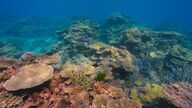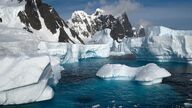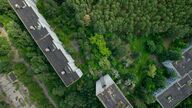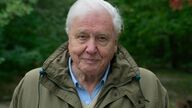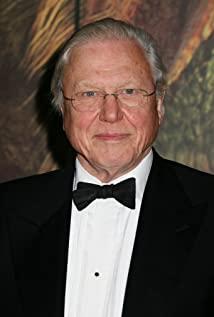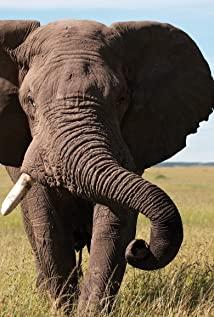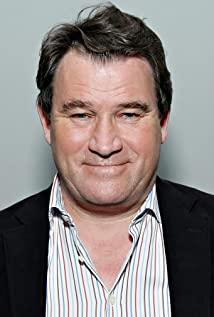I finished watching this documentary with a heavy heart. Four or five years ago, I stopped being interested in nature documentaries, and I clearly knew how much backlog of emotions I had to vent after watching this documentary.
Sir David Attenborough was my childhood enlightenment. In the era of popular TV programs such as "Man and Nature" and "Animal World", wild animals and plants occupied the spiritual world of my childhood. I also remember the BBC and a kind old grandfather who walked through this magically. every corner of the vast land. To a certain extent, the nature documentary has become the spiritual sustenance of his childhood. It is related to the Amazon, Galapagos, Madagascar, Kalimantan, Serengeti and Okavango. Oceans, lakes, deserts and ice fields, because the ecology is closely related, to me at that time, these mouthful names are no longer complicated characters, there are birds and animals, otters, monitor lizards, tigers, leopards and orangutans. Apes, their mysterious remoteness carries a teenager's endless imagination of the world.
Later, the young dream gradually split and collapsed, and the whole world fell, just like the testimony of the old man in this film. Ordinary like me, in the small world of my homeland, I can also perceive the strange changes in the ecological environment in the past ten years. Warm winters and hot summers are becoming more and more the norm in the four seasons, and the more I can smell the blood of killing under the whitewash, I no longer want to watch nature documentaries.
I know that it is purely out of some kind of escape mentality, unwilling to bloom and wither. Yes, the entire ecology of the earth is slowly losing its balance. For the individual, in addition to grief, all that is left is emptiness and helplessness. It's not just a wake-up call to humanity, it's also a countdown to death, which we naturally fear but turn a blind eye to. In August last year, the man-made fires in the Amazon rainforest came into the public eye, I wrote in my circle of friends
After a long period of geological action, the underground storage has formed the soul of our century-old industrial age: oil and gas. Today, we with intelligence, consciousness and civilization are also facing the test. We are already huge enough to change the structure of the earth's atmosphere. The development of technology has opened the magic box of carbon emissions. Neural network (intelligence) and evolution of consciousness are the founders of immortality. It is a masterpiece, but whether it can change the seemingly inevitable fate of the species is still unknown. Who is born to be a pessimist? The ghostly Siren's Song is the sound of the devil in the age of abundance and the death knell, only because of the foreseen tragedy. Never send to know for whom the bell tolls; It tolls for thee.”
I have feelings for the Amazon rainforest. I am confident that this feeling is abundant, just as I am confident that I love this land and this home that we live on, even if I am just an insignificant speck of dust in the world. So after a few years, I would rather see the old man with a heavy heart.
The old man devoted his life to his natural cause, and this film is not only his testimony, but also a review of his love for his career, and a cry for rescue in the midst of ecological crisis. In the course of nearly a hundred years of his life, he has witnessed scenes of magnificent natural landscapes, the majestic waves under the blue sea and blue sky, the slanderous and mournful songs in the forests and wilderness, and the flickering and flickering in the wilderness and sparse trees, all will be gone. reproduce. The silence of the old man in the film, and the indiscriminate words after the silence, detonated all my emotions. I can imagine the fond memories of this blue planet flashing in his heart at the moment. It was the proudest and most precious picture in his life, with his enthusiasm and sincerity, and I thought it was It will only be a review of his long life, a complete emotional catharsis. The progress bar won't deceive me. He stood on the ruins of Chernobyl. He has experienced vicissitudes, but he is still stalwart. He is not only to warn mankind of the ecological disaster that may be faced, but also to prepare for another battle in life. The martyr is in his twilight years and is full of courage. The old man is still full of enthusiasm for the nature that he loved all his life, and he also has high hopes for the entire human world. Even if the history of human evolution is accompanied by plundering, killing and all kinds of misery due to the evolution of capital accumulation technology, even at the cost of the extinction of 90% of the world's species, our old lord still places all his hopes on it. For human beings themselves, because he knows that this is destined to be a self-redemption of human beings. He loves this land, loves all creatures on this land, and his love is firm and deep.
For us, the challenge of ecological imbalances and environmental degradation has only just begun. The new crown at the beginning of the year was strange. It was a few months after the fires in Australia and the Amazon. Now no one knows where it came from, but it has brought lasting turmoil to the entire human society and profoundly affected our real life. Forest fires have been a hot topic for 19 years, and together with the accelerated melting of ice caps and permafrost have been the focus of the news media. But while people are shocked, these appalling ecological events are still innocuous after-dinner chats. Many people are completely unaware of the terrifying crises behind ecological imbalances, and issues of ecology and climate have long ceased to be a distant and vague concept. Right now, it is relevant to each of us. The suffering of 2020 is foreshadowed, and the emergence of the new crown is no accident. Dreamers can have the ambition of interstellar immigration, but now people need a better future for the earth's ecology. As with the prevention of the new crown, we have no chance of trial and error, and we are near the tipping point of climate change and we need to act now. And everyone in this world cannot separate themselves from the ecological link, and no one can be alone in this disaster.
And this is the good intention of the old man to shoot this film
11.5————
The dead are gone, and the living are responsible. We do not discuss philosophy, we should observe the current world and our future with humanistic care, and do our best to solve the environmental crisis.
So some pessimistic clichés have to be refuted!
David Attenborough's idea at the end of the credits is not unfounded idealism and fantasy, nor is it impossible to achieve carbon neutrality of global human activities. According to the existing development model, in the past, the human carbon footprint was negligible when the population base was small and the industrial level was low. But what we have to face today is an increasingly sharp contradiction between the population boom and the innovation of production methods. In the past few decades, the upgrading of industries has not been as fast as we imagined. On the contrary, it has intensified the emission of greenhouse gases, overdrafting the limit that the ecology can bear. The decline of species diversity has a devastating blow to the ecology. The process of mass extinction makes everything seem hopeless, but it is still too late, as Attenborough looks forward to at the end of the credits. The good news is that the three East Asian countries have reached a consensus on a carbon neutral attitude, which is hope. We need faster iterations of new energy technologies, as well as the development and utilization of recyclable technologies. This includes the technological upgrading of the photovoltaic water and wind power industry, the reasonable return of farmland to forests, and the prohibition of fishing, increasing the protection of wild animals and plants, and increasing the utilization rate of existing land. . . The seemingly outdated proposition that industrial development promotes environmental protection is indeed a very realistic approach. For densely populated China, these are steadily advancing. For example, photovoltaic technology has gradually replaced thermal power from the level of market competition in many regions. It can be seen that the industrialization technology upgrade is important for reducing greenhouse gas emissions. With the improvement of the level of industrialization, the population will of course decline, which is also in line with the development law of human society. Of course, population reduction is not the ultimate goal of development, but an additional result of industrialization reform and industrial upgrading. There is no direct contradiction between technological development and environmental protection, and technological upgrading is even directly related to the solution of environmental problems. The most worth mentioning is the issue of land utilization. The population's emission of greenhouse gases is reflected in people's daily consumption. Liberalizing the development and promotion of genetically modified crops is also a reality that many countries must face. Solving the problem of land utilization is equivalent to solving the basic dietary problem, and indulging public opinion's hostility to genetically modified food may be regarded as a perverse act of human development. Even if the prospects are still worth pessimism, never giving up hope and action is the attitude that people should have today.
View more about David Attenborough: A Life on Our Planet reviews



